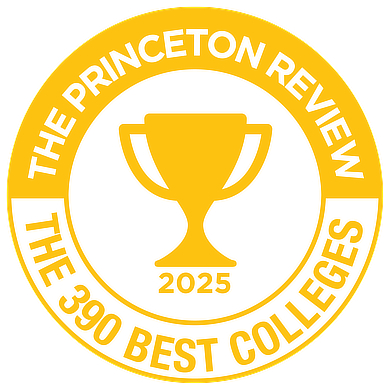

Law governs our society, from the sublime principles in the U.S. Constitution through the regulations that govern the food we eat and the water we drink. But with laws, also come disputes.
Today, there are forms of dispute resolution that didn’t exist years ago. To further complicate things, globalization is blurring the lines between national and international law. Legal policy is going to shape the future. The goal of our legal studies programs is to prepare you for every success in it.
Our faculty are leaders and innovators in their fields, bringing both deep professional experience and academic rigor to the classroom.
Paralegals and Legal Technicians
3.9% Growth 2024-2034
Public Affairs Officers
4.8% Growth 2024-2034
Arbitrators and Mediators
4.3% Growth 2024-2034
An introduction to legal research and writing. Students will learn to find and use primary and secondary legal authority in the law library and computerized legal research databases to solve legal research problems and assignments. Further study of legal reasoning and case and statutory analysis.
Study of legal ethics, including codes of professional responsibility and the legal professional’s responsibilities in different types of organizations and occupational settings. Analysis and discussion of case studies and role playing.
Examines skills needed to conduct investigations that are a routine part of the practice of law, such as principles of fact-gathering in a wide range of cases (e.g., criminal, divorce, custody, housing).
Study of the basic principles of law for government agencies, structure of federal and Connecticut agencies, and major laws governing these agencies, including the state and federal Administrative Procedure Acts and Freedom of Information Acts. Overview of the role of legal professionals in administrative practice with practical applications.
The University of New Haven offers a wide variety of in-depth courses that create a transformational educational experience for our students. To view the complete list of courses you'll take while pursuing a Bachelor of Sciences in Legal Studies, check out the Academic Catalog:
Legal Studies, B.S. - Dispute Resolution Concentration
Legal Studies, B.S. - Paralegal Studies Concentration
Legal Studies, B.S. - Public Affairs Concentration
Get an inside look at what differentiates the University of New Haven and how your experiences as a student will prepare you for success.




All University of New Haven students have access to the many resources available through the University’s Career Development Center, which has been named one of the best in the nation by The Princeton Review.
From career assessments, networking, and job shadowing to on-campus interviews and salary negotiation, the Career Development Center provides the skills and connections to identify a meaningful career and an opportunity to pursue your passion.
Learn More
University News
As part of the University's profile, students described the Charger community as "caring and considerate" and said among its signature majors are many "amazing programs you cannot get anywhere else."
Whether you're still in high school or are transferring from another college, we offer full- and part-time opportunities for undergraduates from inside the U.S. and abroad. The admission process can begin as early as the end of your high school junior year.
The Application Process
We offer a comprehensive financial aid program, with students receiving assistance in the form of grants, scholarships, student loans, and part-time employment. Funds are available from federal and state governments, private sponsors, and from university resources. More than 85 percent of the University's full-time undergraduate students receive some form of financial assistance.
Learn More